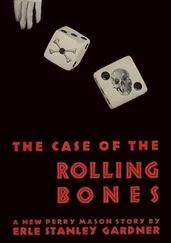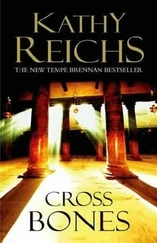She looked pleased. ‘Well, thanks, Reverend. Good luck finding Emmy, if you can. And all right then, it’s true we had words and I regret what I said, about her being a hopeless tart and then a hopeless washer-upper, that was a bit mean and I didn’t expect her to flounce out, but Christ, she’s so stupid sometimes. Anyway, she’s somewhere in Islington or Highbury, I got an address somewhere, could hardly read her writing, something like Herbert Street, number 140 or 142. She said she’d be staying with friends of her sister Flo, and beyond that I don’t know nothing, OK? And now I’m a bit tired and I think you should go.’
‘Does this Florence work?’ I asked, cautiously, ambiguously. When asking pros about other pros, one has to be wary of giving offence. That word ‘work’ is itself capable of a dozen interpretations.
‘She’s a chanteuse in a Palace of Varieties,’ said Nellie, closing her eyes. ‘It’s not what you’re thinking, either. She makes proper money from her voice, and she’s given up the other, I mean the alternative employment.’
‘That is most encouraging,’ I said. ‘Perhaps you might yourself benefit from her example.’
‘I just don’t care, to tell you the truth, Harold,’ said Nellie. ‘I really couldn’t care less about anything any more.’
I left her to her thoughtless life and her laudanum dreams. My thoughts were for poor Emily, ensconced in squalid surroundings in north London, her apartment abandoned, her job aborted, her morale dismally low, her soft animals unlooked-after, her flatmate comatose with narcotics. How has it come to this, when all was so promising, barely a month ago?
Should I write a stern letter to the Café Royal, demanding to learn the details of her foreshortened employment? Should I have shaken Nellie, and told her to go and find her former pal and fetch her back? Should I give the whole thing up as a failure? But then I applied to myself the words, ‘What would Jesus do?’ and my course was clear. I will set out to find Emily Murray, and bring her safely home.
Letter from Mrs Moyra Davidson
Stiffkey Rectory 15 August 1930
My dearest Oona,
Sometimes I think I’m going off my head here. I spent the morning searching for a screwdriver, because the lock on the bathroom door is half off and Mrs Maitland is coming to tea today to discuss the Home Management classes and there is nobody in the world more dainty than Mrs M when she puts a mind to it. I simply cannot have her sitting in there terrified someone’s going to come in and catch her with her best bloomers round her ankles. I asked the colonel if he’d perchance have an implement of that nature in his box of tricks, and he said, ‘My dear Mimi, you will recall I arrived here one day with a suitcase and two boys, and one day I will depart with a suitcase and, God willing, the same two boys, but at no time did I ever acquire a toolbox, I would be a strange house guest if I were to begin kitting myself out with a saw, a chisel and a set of nails, for you might reasonably wonder what could possibly be my intentions.’ (This is the way he goes on.) I asked Nugent, who was writing letters in the parlour, to run down to the shop and find me a screwdriver, so I may reattach the lock on the bathroom door, and he did as I asked after only, ooh, an hour or two because he’s writing to apply for a job in the Civil Service, very swagger I’m sure, he has the confidence of the devil, but then sure he’s only just out of the college and why wouldn’t he be bursting with energy and ambition after being pumped with learning for three whole years like a Strasbourg goose? I wish young Sheilagh would find proper employment for a young intelligent girl instead of (rainy days) floating round the house all day reading books or (fine days) riding Joshua Judges at point-to-point meetings in Holt and Wells. I keep urging her to go into nursing like her mother did, but she wrinkles her nose and tosses her hair and complains about having to manhandle the sick and dying all day, that she’d rather hang on for something on the stage. She’s had her hair ringletted like Helen Twelvetrees, that actress in the films who’s always weeping, but I can’t really see my darling S as an actress, she’s too earnest, she doesn’t have a fluent technique. I tell her nursing is a fine career for a girl looking to make a difference in the world, but she says well, why, in that case, Mother dear, did you yourself abandon nursing to go on the stage? And I haven’t an answer for that, except to say I was following a dream buried deep within me.
Anyway, Nugent came back after God knows how long and reported that he couldn’t find a hammer to buy anywhere, I could have boxed his ears, it was a screwdriver I wanted.
I’m tired of this stupid story. What’s really bothering me is the major. Did I tell you about the galloping Major Hammond? He was one of the nouveau grandees who came along twenty years back, when the land around these parts was sold at auction by the Townshends who used to own it and a yelping battalion of new squireens moved into the neighbourhood, ex-army types who fancied themselves as landowners because they’d bought the deeds to a few acres for a song. You could hear them in the Townshend Arms telling their mess pals, with their civvy suits and their suburban wives, ‘Oh yairs, I own all the fields around here as far as you can see to yonder copse.’ Jesus, yonder copse forsooth, they wouldn’t know a copse from a hole in the wall, but they give themselves such airs, it makes me sick – me who’s been here since King Edward was on the throne.
Anyway, the good major, ever since he bought the old hall at Morston, he’s been dropping hints left, right and centre about wanting the churchwarden’s job.
My friend Cathy Dineen is on the JP bench at Holkham, hearing cases of trespass and poaching and aggravated affray at Cromer on bank holiday weekends. She cannot stand the way the major runs the bench and tells everyone how to think. Take poor young Edward Fenny, a simple-minded lad who’s been caught fecking ripe pears from the orchard beside Blakeney Church, and selling them by the side of the road. Not a trace of compassion for the poor lad will you find in the major. ‘Speaking as the local magistrate,’ he says, making it sound like it’s Speaking As Your Commanding Officer, ‘I feel we must apply the full force of the law to this unwashed miscreant. There can be no pleas in mitigation. We must press for a conviction.’
Cathy says, ‘Just a minute, Your Honour,’ and he won’t even look at her, like he’s heard some tiny sound in the courtroom but he can’t identify where it’s coming from. ‘All that’s been stolen here are a few dozen piece of ripe fruit that nobody’s breaking their necks to pick off the trees, and nobody’s livelihood is threatened by a bit of schoolboy scrumping. Why are we discussing this, and conspiring to send to jail a young simpleton who is only trying to make, what, three or four shillings to buy himself a pair of shoes?’
‘He Is A Thief,’ says the major with that awful slow politician voice he puts on in public, ‘a furtive trespasser on Church lands, a stealer of Church property. Would you, Mrs Dillon, be equally sanguine about his crime if he were to break into the church and abscond with the silver Communion chalice and the gold platter? Would you find that no matter for judicial inquiry? I rest my case.’
Well, it’s Mrs Dineen , as a matter of fact, not Dillon, and it’s not a chalice either, it’s called a ciborium , you dish out the communion wafers from it, and the plate for the breaking of bread, that’s a paten for God’s sake – platter indeed, he’s spent too much time in roadside hostelries being asked if he’d like the seafood platter, if they can interrupt his drinking, you know he drinks like a bloody fish. Poor Cathy, she’s sitting there like a fish herself, opening and closing her gob with amazement that anyone could be so unfair, but she says, nonetheless, ‘The pears are not holy objects. The fruit on the trees are not consecrated to God. Simony is not the issue here. Young Edward Fenny may have stolen the fruit, but it would have rotted on the branch. Rather than send him to rot in prison like one of the pears, we should applaud his enterprising spirit and encourage him to direct it into more legal and lucrative arenas.’
Читать дальше












